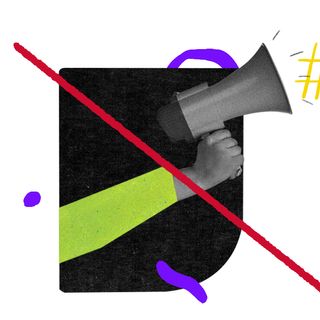
It’s Okay: To Be a People Pleaser
People-pleasing can help us adjust better to new surroundings or make friends more easily.

In It’s Okay, we defend our most embarrassing, unpopular opinions.
I have a friend who says yes to everything. From spending more time at work and taking on extra workload to tagging along on plans they really don’t want to — the train hardly stops at “No-ville.” They’re more than happy to alter themselves to satisfy others’ expectations. “I have a problem,” they recently confessed.
Yes, okay, this sounds problematic. People like my friend don’t know how to set boundaries, how to say no, or be self-confident. A people-pleaser is typically understood to be someone so desperate to be accepted that they dare not prioritize themselves or disagree due to the fear of coming across as selfish; they are “part sycophant, part doormat,” as Sarah Todd wrote in Quartz. An overreliance on wanting to please becomes a weakness when it stops us from standing up to others or standing up for ourselves.
A lot has been said aboutthe many problems of wanting to please people incessantly. But I come to you with a plea for balance, for moderation in our judgment of people who like to earn validation.
To begin with, people-pleasing is something we all tend to do, if ever so secretively. We’re all people-pleasers — in workspaces, friendships, family settings — on some level. Even a very self-possessed person may sometimes look to someone else for that validation.
In wrapping up our tendency to seek approval in societal disdain, we destine people to a fate of extremities: either caring too much (which is toxic) or not caring enough (which can be counterintuitive to personal growth). If we remove the negative associations of people-pleasing, we could achieve a healthy balance between how much or how little we bend for someone else’s sake.
Plus, demonizing people-pleasing also inevitably leads to romanticizing the “not-giving-a-fuck” rhetoric. People who are distant and cold, who couldn’t care less about validation, are portrayed in these all-too-cool roles in cinema too. But this idealization keeps up from talking about the drawbacks of not caring.
“Our greatest and strongest characteristics are often both/and,” Esther Perel, a psychologist, notes, referring to the idea of striking balance. We’ve been trying to find ways to stop people-pleasing as if it’s a bad habit. But it’s just like any other habit that becomes “bad” when exercised in excess.
Related on The Swaddle:
It’s Okay: To Seek Validation From People You Care About
Being a people pleaser is not inherently a character flaw. That validation, or praise, can often act as external motivation. Like every kind of motivation, it comes with pros and cons. And to care what others think of you is not necessarily a bad thing. It challenges us to grow, even put our best foot forward. In some situations, wanting to please others can really work to our advantage.
Further, in the context of interpersonal relationships, being accommodating and wanting to please people is a strength. It fosters relationships and encourages support between people.
For example, think of how people, and even animals, tend to code-switch to adjust better to their surroundings or make friends with new people. Now, changing your accent or other parts of the way you speak might seem like one of those people-pleasing tendencies that deserve to be frowned upon. “If someone is caught mid mid-code-switch, they’re immediately seen as a poser because the illusion of balance and control is broken,” The Swaddle’s Aditi Murthi noted.
But “[c]ode-switching helps people navigate the world because using multiple, different ‘codes’ help people bond better, communicate better, and get what they need done,” she explained in a previous article.
So how do we straddle the line, between acknowledging other’s opinions, even wanting to please them because we care, and not ruining our self-esteem and personality in the process? Perel suggests erasing the term “people-pleasing” from our vocabulary. “[It] is a label and it tends to be seen as negative, as a liability,” she says.
Plus, people’s proclivity to want to please is based on their upbringing, their interactions with family and friends in their formative years. The need for acceptance is embedded within; and if we continue eschewing people-pleasing as if it’s a dirty word, it takes people further away from resolving these ideas within themselves. Instead, maybe it’s time we simultaneously accept the part of ourselves that likes to be nice and accommodating and work on the reluctance to say no or not put ourselves over other people.
Next stop: trying to pull off a balancing act between too much and too little. You’ll be alright.
Saumya Kalia is an Associate Editor at The Swaddle. Her journalism and writing explore issues of social justice, digital sub-cultures, media ecosystem, literature, and memory as they cut across socio-cultural periods. You can reach her at @Saumya_Kalia.
Related


The Buzz Cut: Why Did the Police Expect to Find Swara Bhaskar at the Offices of a Liberal News Publication?
